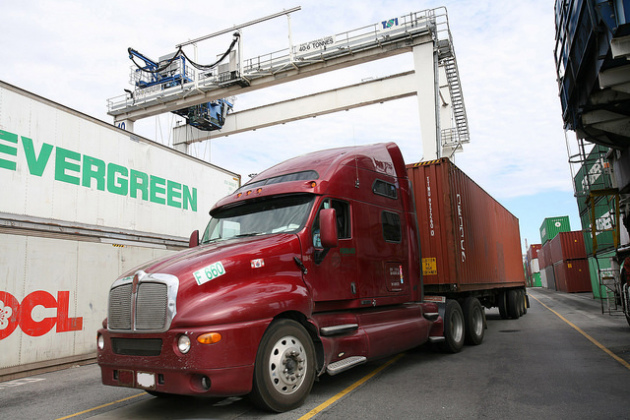ECONOMIC WATCH: Canadian economy devastated by Covid-19
OTTAWA, Ont. – Statistics Canada today issued a flash estimate for GDP, showing a decline of 9% in March, marking the largest single month decline ever seen since records were tracked beginning in 1961.
The agency’s flash estimate points to a 2.6% decline in the first quarter. It issued its flash estimate due to the Covid-19 outbreak, but StatsCan points out the data should not be expected to be as accurate as its traditional GDP reports, which draw on more actual data.
Still, it offers a glimpse of the devastating toll the virus is having on the Canadian economy.
“Economic disruptions have been both deep and widespread in the month of March,” StatsCan said. “Among the hardest hit by social distancing measures and government restrictions have been the travel- and tourism-related industries, such as personal transportation, restaurants and accommodation. Major declines have also occurred in personal services, retailing (other than food), entertainment and sporting events, and movie exhibition. Working from home and distance learning have been growing trends across society, however, due to the suddenness and breadth of the shutdowns of government and education facilities, the volume of output in these sectors, based on actual hours worked, is calculated to decline dramatically.”
But not all sectors of the economy declined.
“Activity in the health sector, food distribution and online retailing and streaming have been growing,” StatsCan reported. “Despite the collapse in oil prices and the pullback in the sector’s investment activities, early indications seem to show that the volume of oil and gas extraction and pipeline transportation had not yet been substantially impacted in March as storage facilities were still being filled.”
The Conference Board of Canada also issued a news release this morning, saying “With the advent of the Covid-19 pandemic, Canada is in the midst of an economic downturn unlike anything most of us have ever experienced.”
Downturn short-lived?
A preliminary forecast on provincial economic outlooks predicts Canadian GDP will drop by 25% in the second quarter, marking the steepest quarterly decline seen since the beginning of formal record keeping.
“Every province has fallen into recession. Our forecast expects that the downturn will be short-lived and growth will resume in the second half of the year, assuming businesses slowly reopen over the spring and summer.”
Alicia Macdonald, The Conference Board of Canada
“Physical distancing requirements as well as the closure of non-essential businesses have brought a large portion of the economy to a standstill,” said Alicia Macdonald, associate director, economic forecasting, at The Conference Board of Canada. “As a result, every province has fallen into recession. Our forecast expects that the downturn will be short-lived and growth will resume in the second half of the year, assuming businesses slowly reopen over the spring and summer.”
Key findings from the Conference Board report show: the Canadian economy will contract 4.3% in 2020; Newfoundland will enter recession this year, thanks in part to declining oil prices; P.E.I.’s economy will contract 3% as tourism dwindles; New Brunswick will see a 3.3% contraction, while Nova Scotia will pull back 3.6%; Quebec will see GDP contract 3.8% this year, but should bounce back next year gaining 5.8% thanks to income support programs; and Ontario’s GDP will fall 3.2% this year, marking one of the smallest declines of all provinces, as the province’s workforce includes many professional services workers who can effectively work from home.

The Western Canada perspective
In Manitoba, The Conference Board of Canada predicts the economy is set to contract by 3.9%, as the pandemic weighs on household spending and demand in key industries, including transportation equipment manufacturing. Saskatchewan will be among the hardest-hit provinces with a 5% drop in GDP expected this year, before rebounding 5.4% next year.
Alberta is facing the double-whammy of the Covid-19 outbreak coupled with a severe contraction in oil prices. The Conference Board of Canada is predicting a 5.8% decline in Alberta’s GDP this year, which would be the worst annual decline on record. But it is anticipating a sharp rebound of 6.1% in 2021. B.C.’s economy will contract by 3.2% this year, with a slowdown in international trade affecting port and transportation activities.
Have your say
This is a moderated forum. Comments will no longer be published unless they are accompanied by a first and last name and a verifiable email address. (Today's Trucking will not publish or share the email address.) Profane language and content deemed to be libelous, racist, or threatening in nature will not be published under any circumstances.